Receiving a grant rejection can feel disheartening, but it's an opportunity to learn and grow. Crafting a thoughtful rejection letter can help convey your appreciation for the applicant's effort while providing constructive feedback for future opportunities. It's essential to be transparent and compassionate, ensuring that applicants understand the reasons behind the decision. If you're interested in how to navigate this sensitive communication, keep reading for a detailed letter template that can ease the process.
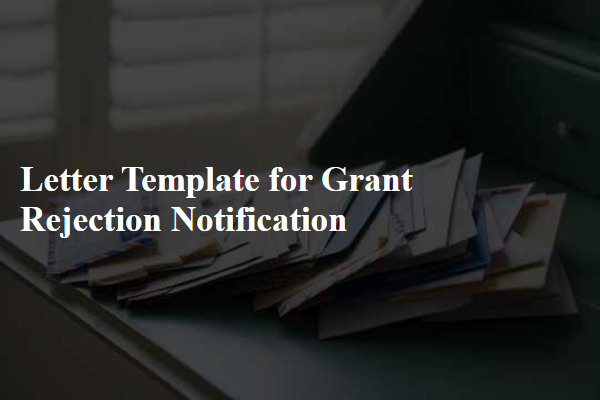
Polite and empathetic tone
The process of grant evaluation can be highly competitive, and many organizations submit proposals seeking funding for impactful projects. The selection committee meticulously reviews each application based on criteria such as innovation, feasibility, and alignment with funding priorities. Unfortunately, due to limited resources, many worthy projects cannot be funded. Applicants are encouraged to seek feedback for future submissions, as this can provide valuable insights. Continued perseverance in securing funding is essential for the success of important initiatives, despite setbacks.
Clear statement of rejection
The grant application submitted by the organization on April 15, 2023, for the "Community Health Initiative" project has been thoroughly reviewed by the grant committee. Following careful consideration, we regret to inform you that your application will not be funded at this time. The committee received over 150 applications, competing for limited funding of $500,000. Although your proposal demonstrated innovative approaches and potential community impacts, it did not align closely enough with the strategic priorities outlined for this funding cycle. We encourage you to apply for future grant opportunities which may be more suitable for your project. Thank you for your understanding and commitment to enhancing community health.
Brief explanation of decision
The grant proposal submitted by your organization was assessed by our review committee. Unfortunately, it did not meet the criteria for funding due to the high volume of applications received this cycle and the limited budget available. The proposal's alignment with our program's strategic goals was noted, but it lacked sufficient detail in the project objectives and outcomes, which are critical for demonstrating feasibility and impact. We encourage you to consider these aspects for future submissions.
Encouragement to reapply
The recent analysis of grant applications for the 2023 research funding cycle revealed a highly competitive pool of submissions from various institutions. The review committee noted your project's innovative approach to sustainable agricultural practices, particularly in drought-prone regions like California's Central Valley. Unfortunately, funding for this cycle was limited, and your proposal, while promising, could not be supported at this time. However, the committee encourages resubmission in the next funding cycle, emphasizing the value of your research in addressing climate change impacts on farming. Feedback from the reviewers highlighted areas for enhancement, including clearer articulation of project objectives and a more robust methodology. Reapplying with these improvements could significantly strengthen your chances for future funding support.
Contact information for further inquiries
A notification regarding grant rejections plays a critical role in maintaining transparency and professionalism within funding organizations. Grant applicants often invest significant time and resources into their proposals, and providing clear communication regarding decisions is essential. The rejection notice should include key contact information for further inquiries, allowing applicants to seek clarification or feedback. This contact information typically comprises a dedicated email address (such as grants@organization.com) and a phone number (e.g., +1 (555) 123-4567), ensuring that applicants can easily reach out with their questions. Establishing this point of contact fosters a constructive dialogue, which can be invaluable for applicants seeking to improve their future submissions. Additionally, organizations may emphasize openness to discussion about specific aspects of applications, encouraging applicants to engage in a learning process.

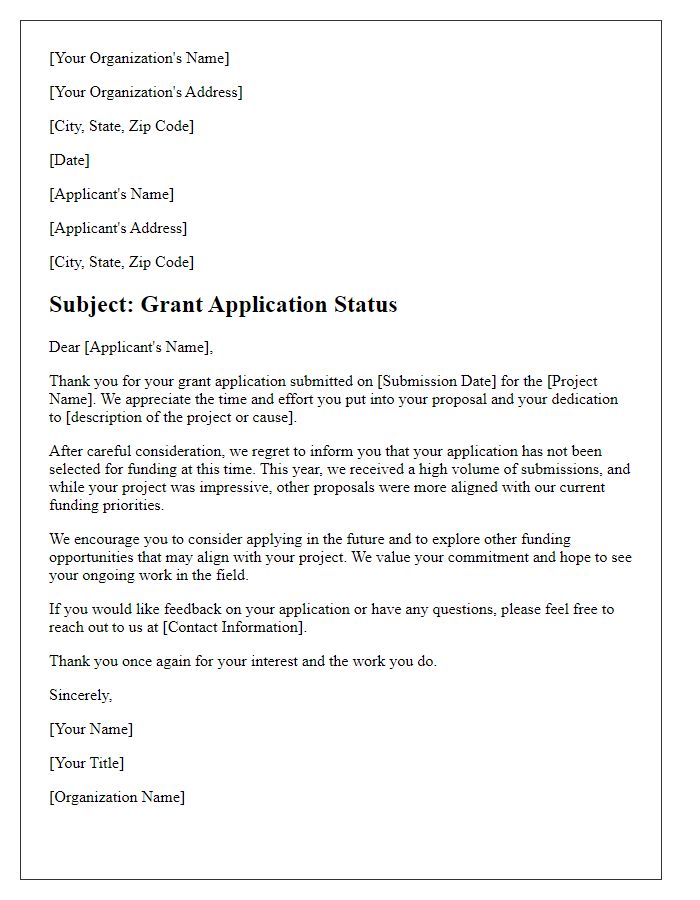
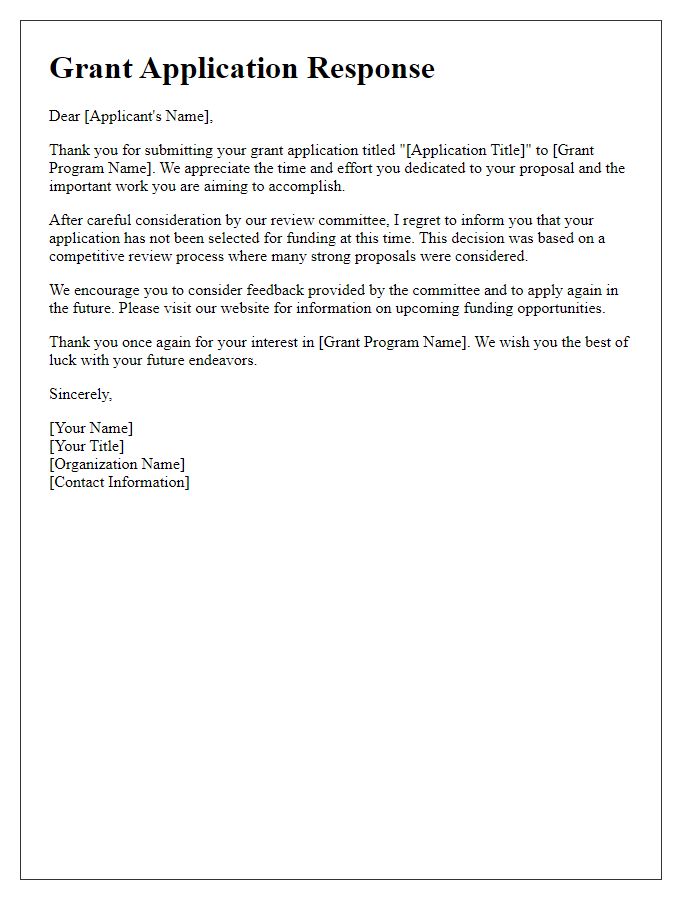
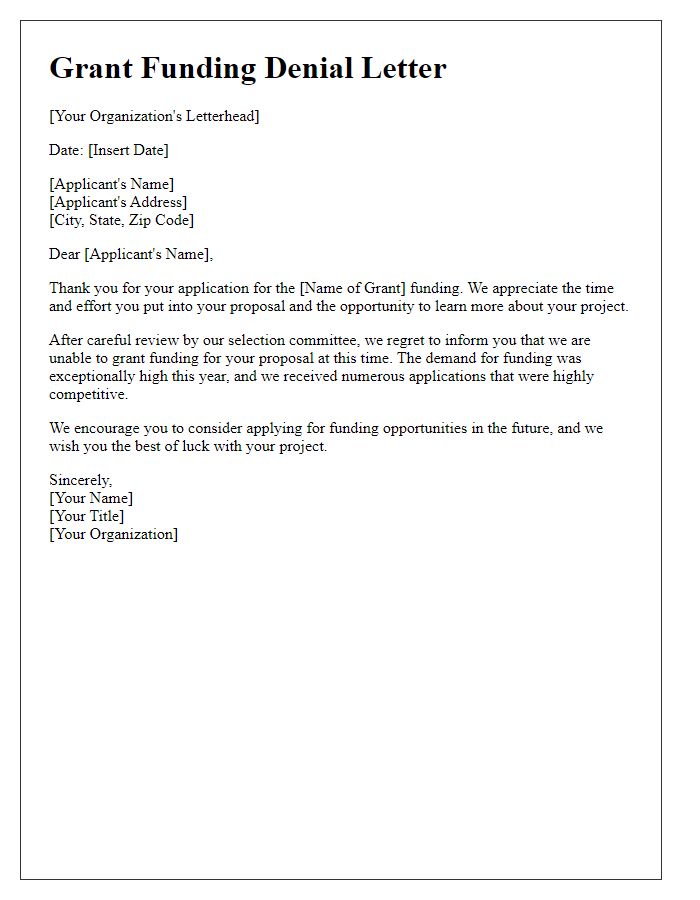
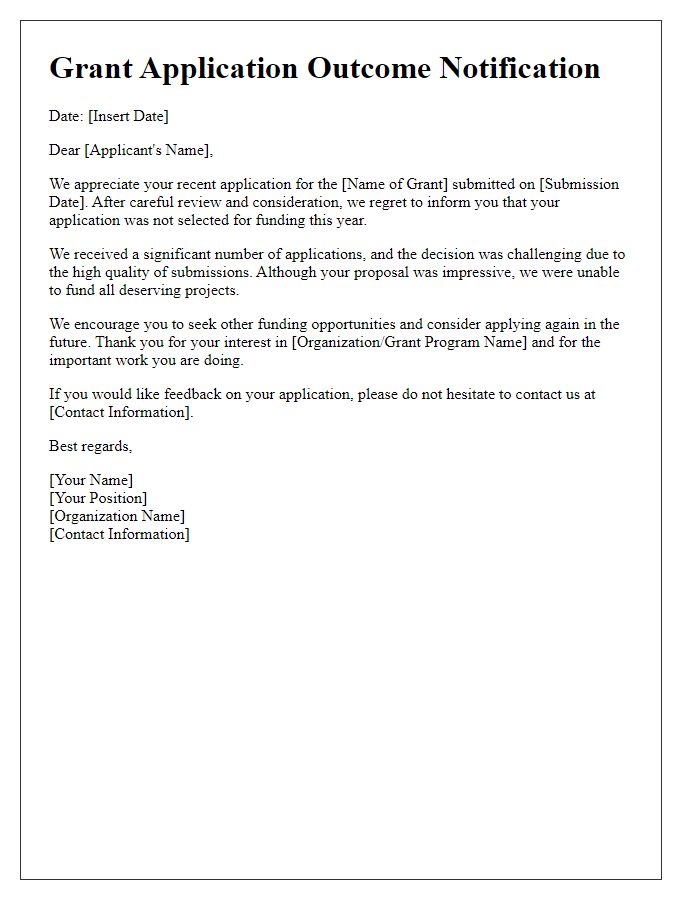
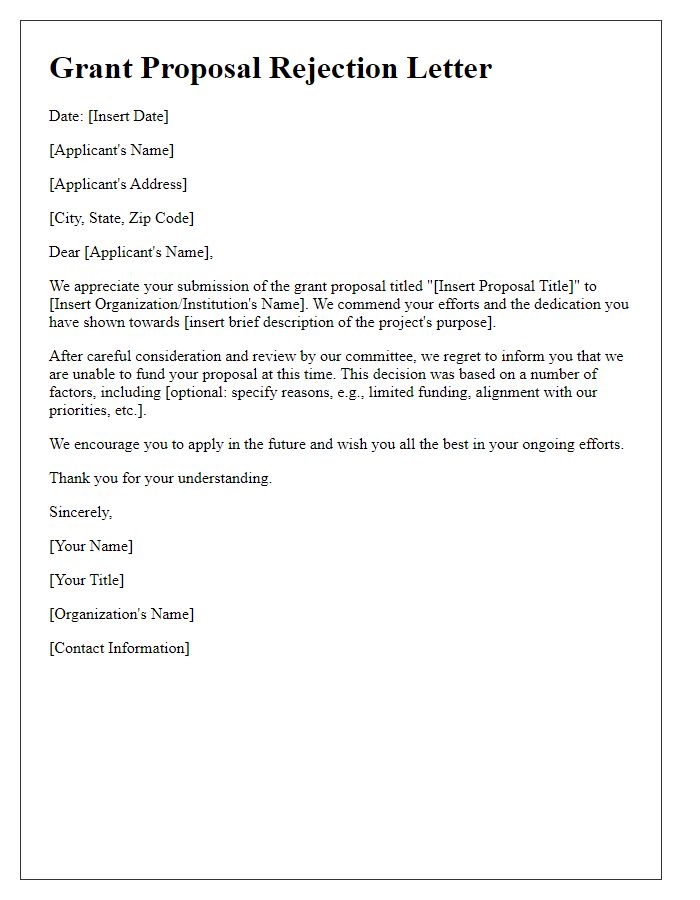
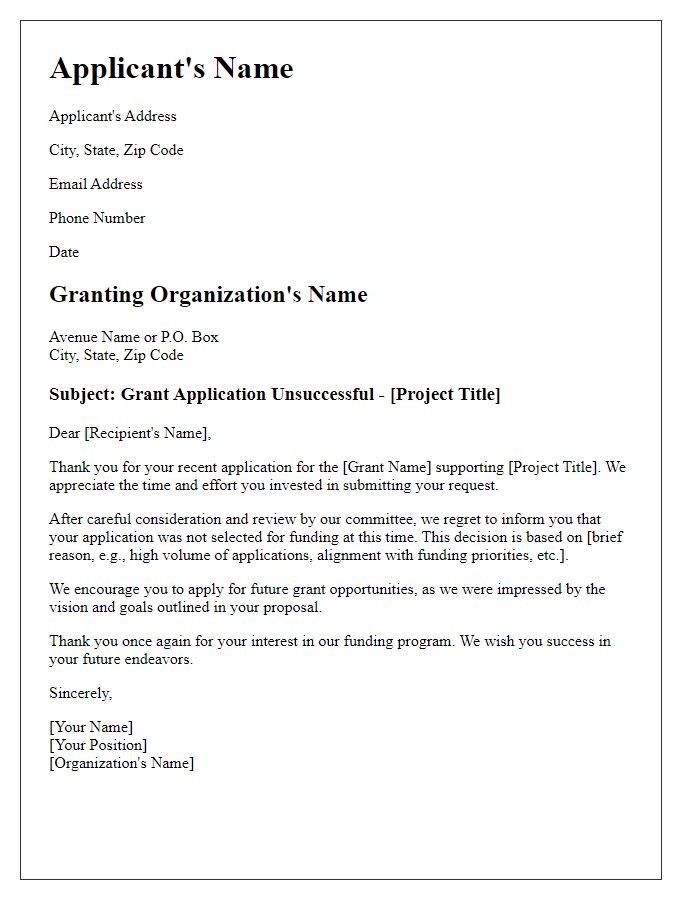
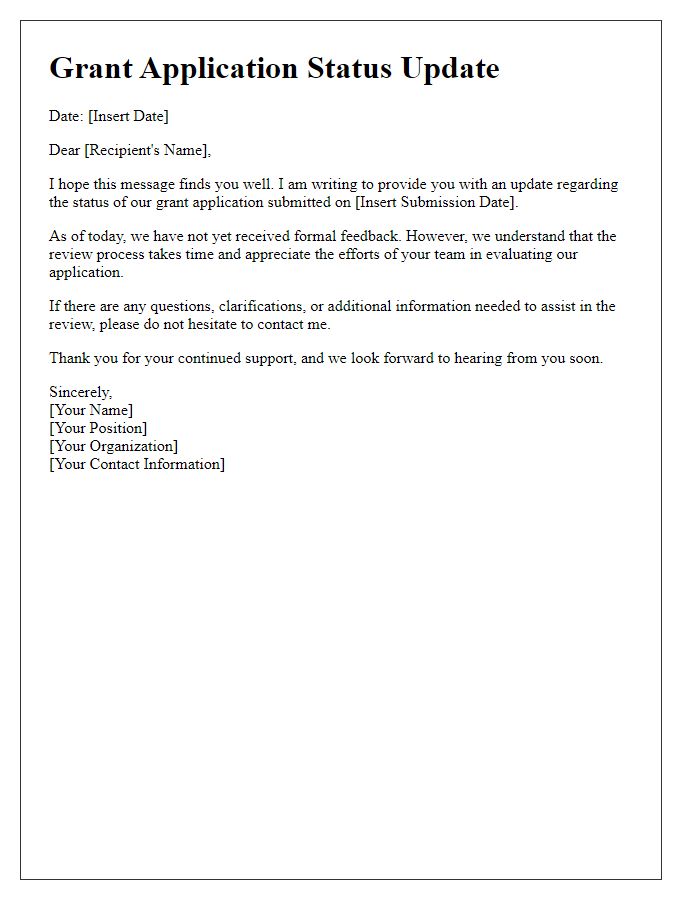
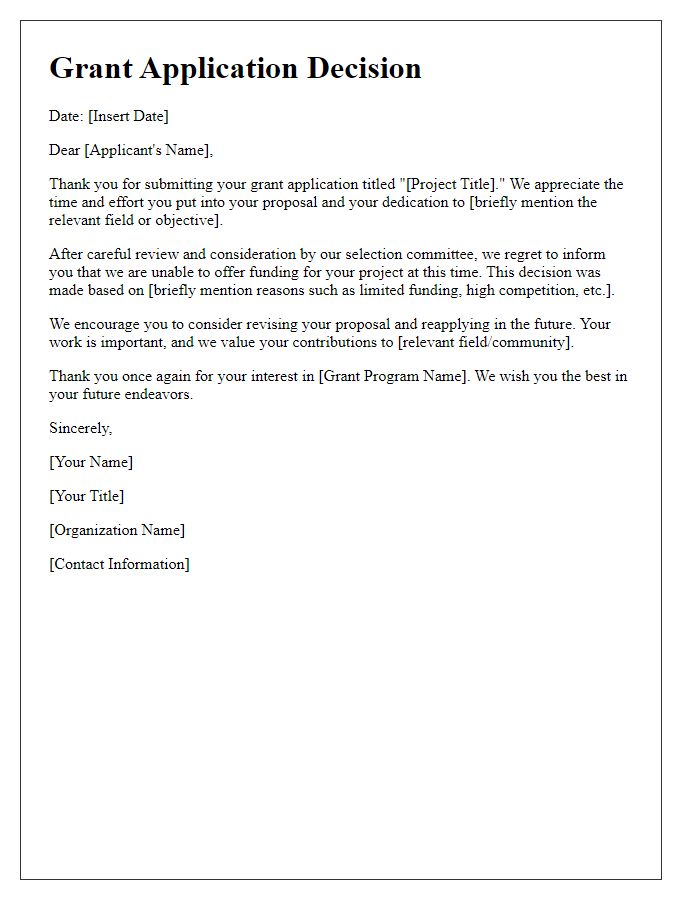
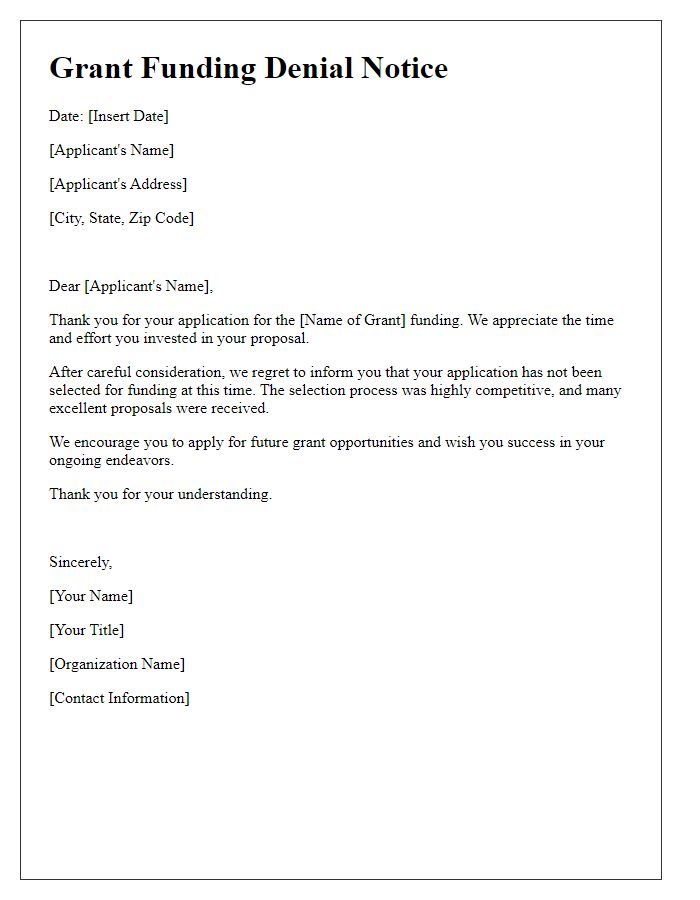
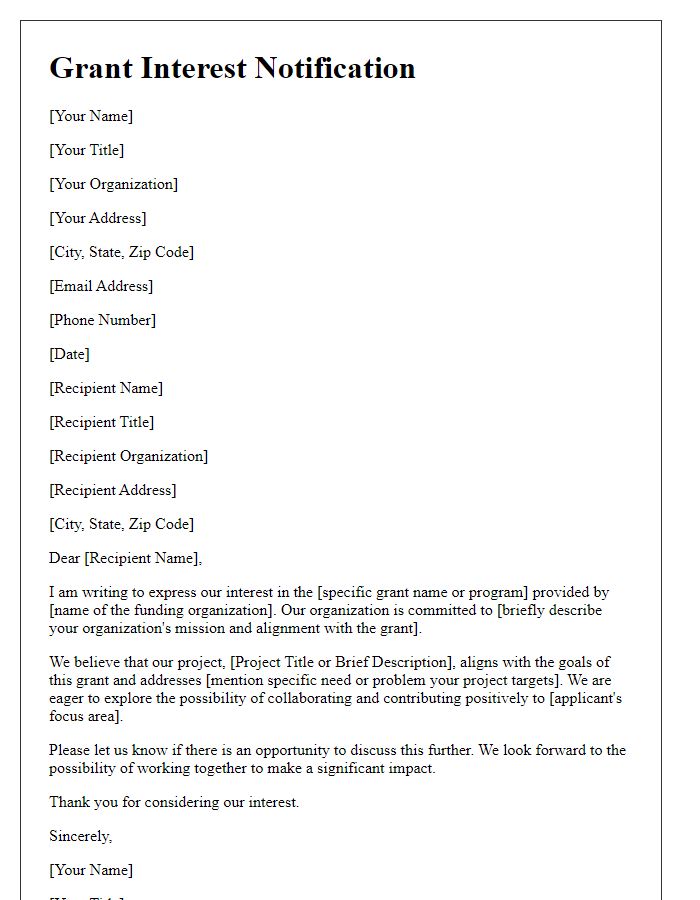

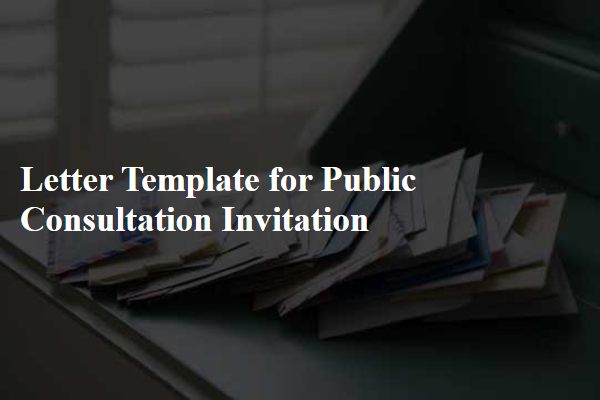
Comments